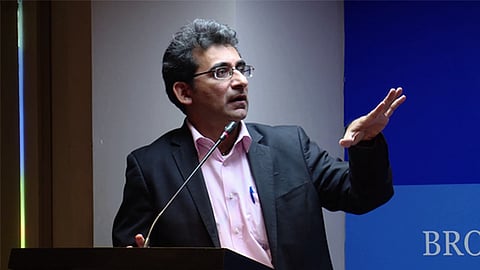

MUMBAI: Squarely blaming the poor demand as the main reason for the falling corporate investments or capital spending, which has fallen by a significant 12 per cent of GDP in the past decade alone. Sajjid Chinoy, the chief economist at JP Morgan India has said the problem has nothing to do with supply but everything to do with waning demand.
Over the past decade, corporate investment has dropped by 12 per cent of GDP. Policies especially the tax imbalances on different asset classes, should focus on reviving corporate investment to boost overall economic growth, Chinoy said addressing a SEBI-NISM organised market summit here Friday.
“The reason why corporate investments aren’t picking up is not to do with limited supply but rather with limited demand,” Chiny said.
It can be noted that officially falling demand is still not accepted for the slumping growth, which is blamed on the missing capex by the private sector. The problem is that the private sector has built up so much capacity in the boom years of the first decade of the century that the demand has not grown enough to put up additional capacities.
Chinoy said though most of companies today have strong cash flows and balance sheets, and thus lower debts, the problem today isn't about the financial health of these companies but rather about ensuring these companies invest in growth rather than holding back.
“But just because companies are financially strong doesn’t mean they will automatically invest. Companies will only invest if they expect good returns,” he said.
In a similar vein, Chinoy said private savings is not a problem. For instance, if the current account deficit is 1 per cent of GDP while the public sector deficit is 7 per cent, it shows that the private sector is swimming in savings. “There is a large savings surplus in the private sector which is getting offset by the public sector deficit imbalances,” he added.
“A solution to converting these private savings to investments is to make tax policies for different asset classes neutral. So, there are similar taxes across all asset classes which encourage investments", he suggested.
Chinoy stated, “If and when a capex cycle begins and corporate bond issuances increase, tax policies should remain neutral to ensure that household investments are not distorted by varying tax rates.”